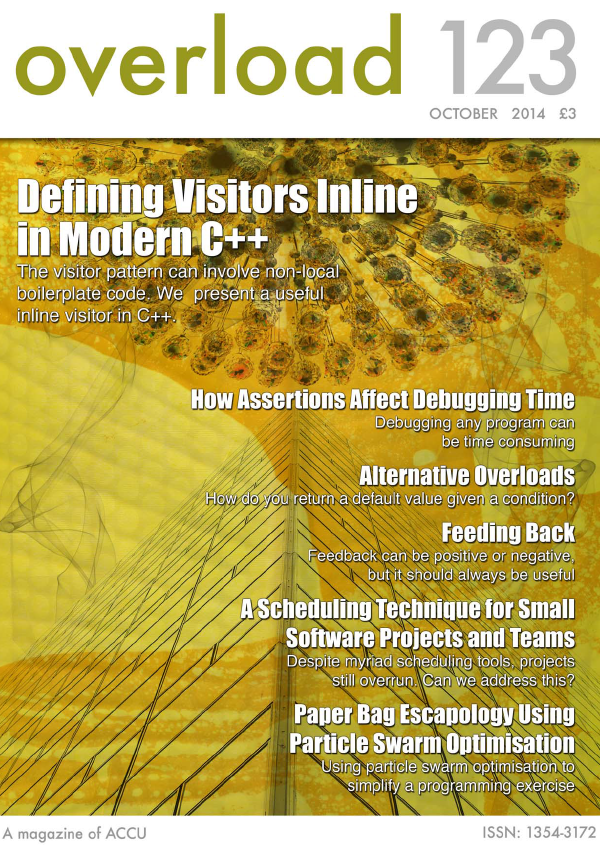Ranges for the Standard Library -- Eric Niebler
 Fresh over the weekend, and in this morning's Standardization feed:
Fresh over the weekend, and in this morning's Standardization feed:
N4128: Ranges for the Standard Library
by Eric Niebler
From the article:
Eleven months ago, I began work on an updated range library for modern C++. Yesterday, I submitted a proposal to the C++ standardization committee to add ranges to the Standard Library. The proposal presents a vision for a future Standard Library that is familiar and yet more powerful, more usable, and more efficient than today’s.
My goal is nothing less than to change how C++ programmers write code. Seriously.

 Overload 123 is now available. It contains the following C++-related articles, and more:
Overload 123 is now available. It contains the following C++-related articles, and more: New in Eric's series on ranges for C++:
New in Eric's series on ranges for C++: ACCU 2015 is now putting together its program, and they want you to speak on C++. ACCU has long had a strong C++ track, though it is not a C++-only conference. If you have something to share, check out the call for papers.
ACCU 2015 is now putting together its program, and they want you to speak on C++. ACCU has long had a strong C++ track, though it is not a C++-only conference. If you have something to share, check out the call for papers.  A widely-used C++ program you might never have heard of: Physicists and other scientists use the GEANT4 toolkit to identify problems before they occur.
A widely-used C++ program you might never have heard of: Physicists and other scientists use the GEANT4 toolkit to identify problems before they occur.